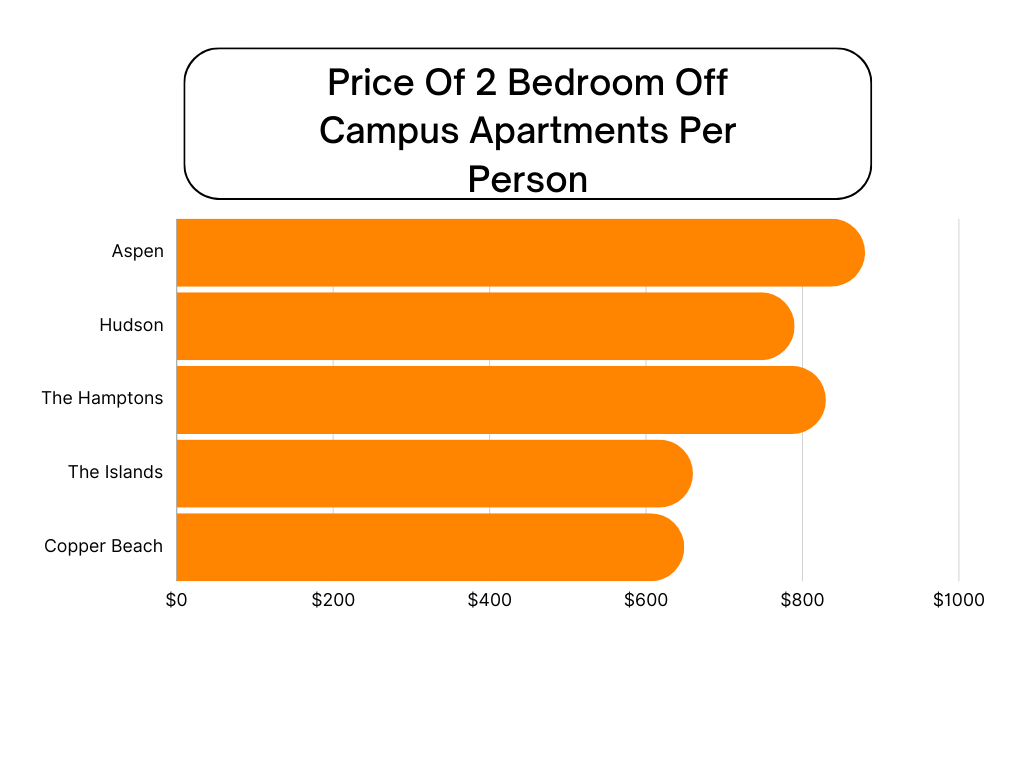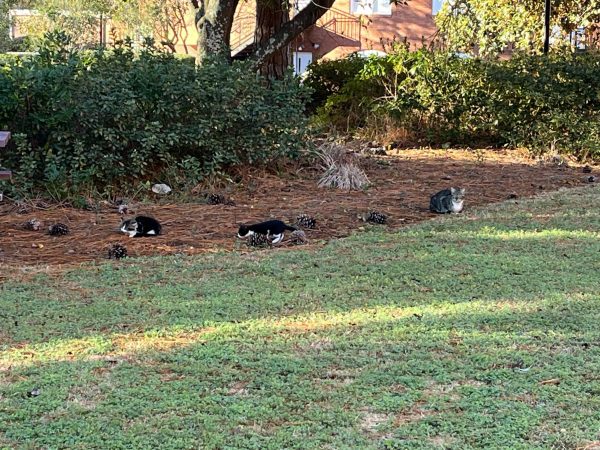From dream to table: 4&20 Bakers owner grows his sustainable farm
October 25, 2016
You may have noticed him selling his cupcakes at the downtown Statesboro Main Street Farmer’s Market. You may have also seen his desserts adorning the display racks at Three Tree Coffee.
Chad Montgomery, local owner of catering and food truck business 4&20 Bakers, is capitalizing on another aspect of his business- his farm.
Montgomery, with the assistance of others, has been working to make his dream of a sustainable farm a reality.
Before Montgomery moved to the Sylvania area in May 2014, he did not think that his vision for his hobby farm would be realized for several years.
He worked as a custodian at Georgia Southern for several months in 2014. Then, he decided to step down from that position to pursue his pastry business and his farm more.
Montgomery renovated his house while working on different aspects of the farm. Over two years later, his work seems to be paying off.
The fruit of his labors
Much of what Montgomery grows on the farm is fruit for his pastries. One fruit which he is almost ready to harvest are his dessert pears.
“For winter, these are just going to be just fantastic. They’re almost at their peak now,” Montgomery said. Within the next month or so, you’ll see a lot of pear bread pudding coming out of the bakery.”
A plethora of trees, such as peach, plum, pear and pecan trees, are planted around the farm. There is also a mix of blackberry, black raspberry and blueberry bushes.
Montgomery also created raised beds for his herb garden, including rosemary, ginger and mint.
Insect strips are part of what protects the fruits Montgomery grows.
“When you have native insects and you give them a place to harbor, especially during the wintertime, they help keep out the bugs that are trying to eat your plants and eat your fruit,” Montgomery said.
The people behind the plots
During this semester, GS students have been helping Montgomery with various tasks around his farm.
“I want to have a relationship with the college. I’ve been working the past few weeks with nutrition interns, and recently now with different environmental biology interns,” Montgomery said.
Some of the students recruited to work at the farm are completing their service learning requirements for their environmental biology classes.
“This was different from other volunteering opportunities,” Timi Fagbamiye, a freshman engineering major, said. “I haven’t really been in this type of environment working. It was just a new experience, to see what it was like to work composting and whatnot.”
Others, like senior outdoor recreation intern, Becca Fogarty have assisted Montgomery through visiting and assisting the farm multiple times.
“It’s been nice to see what we’ve done here actually flourish,” Fogarty said. “I helped out with the goats the first time I came here, and then we did a lot of raised bed stuff. When we did all that, that laid the foundation to do more beds as well.”
The science of sustainability
Montgomery gathered several of the ideas he is implementing on his farm from a sustainable farming conference he attended called Growing Power.
“I’m taking those concepts and adapting them to the larger land resources I have on the farm,” Montgomery said.
One of those ideas that Montgomery has utilized is composting. He has static compost piles on his farm, as well as compost bins. In one of his bins, he is using soldier flies to compost for him.
“All of my food waste goes into there. These soldier flies break down all the bad stuff in there [the compost bin] and make compost. They work like worms do, which is vermicomposting,” Montgomery said. “I’m also working on a tube where they can crawl out and then i’m going to harvest them to feed to my chickens.”
Using the flies as organic feed for his chickens would save Montgomery a significant amount of money on chicken feed. He is working on this process before he purchases chickens later in the year.
Additionally, Montgomery wants to use the practice of aquaponics, raising fish and plants in the same body of water.
He plans on putting fish in the seven acre pond that is on his farm. The fish will deposit waste full of nutrients in the water, and then the pondweed will absorb those nutrients.
Montgomery will then use the nutrient-rich pondweed as part of static compost piles. He thinks that this is a viable alternative to farmers spraying herbicides on their weeds.
“That’s what people are doing, and they don’t realize that goes into your fish, and there’s certain parts per million that you’re going to be eating because that’s where the fish live,” Montgomery said.
More than crops
Montgomery has many fruit trees and bushes growing around his property now, and he intends to add even more.
One way he will do that is by building a high tunnel hoop house. A hoop house is a greenhouse that has rounded plastic over its top and has a long, rectangular shape.
“With the high tunnel, you’re able to extend your seasons longer out of the cold. Because they [the plants] will be in a plastic tube, I’ll be able to adjust the temperature,” Montgomery said.
Montgomery is moving forward on his hoop house initiative as part of a cost-share program. The United States Department of Agriculture (USDA) and the Natural Resources Conservation Service (NRCS) are coordinating with him to make the greenhouse possible. He hopes to move forward on this initiative over the winter.
People may also be able to purchase Montgomery’s desserts in two additional businesses before the end of the year. The chef currently bakes out of Statesboro restaurant Holiday’s Pizza.
“I work with Holiday’s and Vandy’s [Barbeque]. Our desserts are just getting ready to go into there [Holiday’s and Vandy’s] in November,” Montgomery said.
The chef is not stopping there. He also envisions his farm as place for agritourism in southeast Georgia.
One way Montgomery hopes to draw people out to the farm is by hosting sustainable farming and cooking workshops. These workshops would cover topics such as composting, gardening and cooking food in the kitchen. He also hopes to reach certain people with these workshops.
“I think any family could benefit from [these workshops] and especially veterans dealing with PTSD…people that are looking for new ways to incorporate their lives and start over,” Montgomery said.
Peace and quiet
Life in Sylvania offers opportunities quite different from what Montgomery was accustomed to in New York.
He has been able to start or plan to start projects on the farm, all while keeping an eye on his father.
“After coming from New York, I’ve paid my dues,” Montgomery said. “I don’t hear people talking on cell phones, throwing bottles, car horns…this is how I’ve always wanted to live.”









